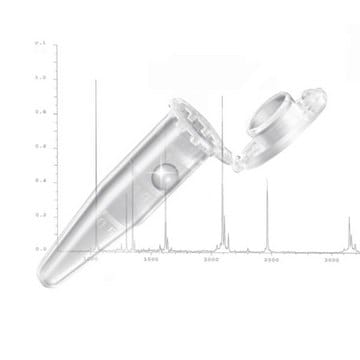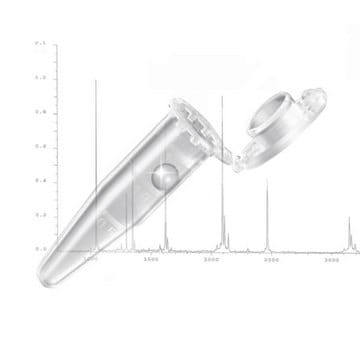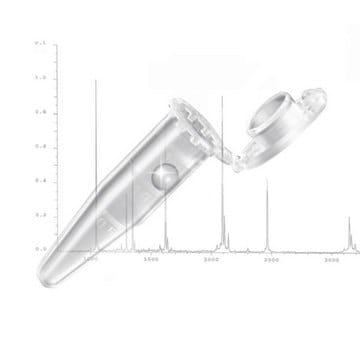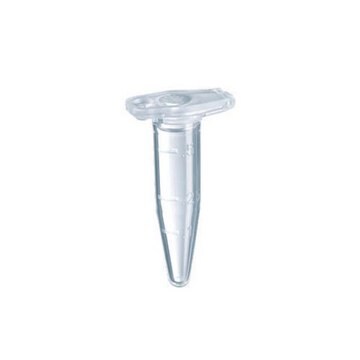EP022431102
Eppendorf® Protein LoBind tubes
capacity 2.0 mL, PCR clean, pkg of 100 ea (2 x 50ea)
About This Item
Prodotti consigliati
Materiali
(push fit)
polypropylene cap
Sterilità
non-sterile
Caratteristiche
PCR clean
Confezionamento
pkg of 100 ea (2 x 50ea)
Produttore/marchio commerciale
Eppendorf® 022431102
Parametri
-18,000 × g max. RCF
Capacità
2.0 mL
Diametro
10.5 mm
Colore
clear
Compatibilità
suitable for PCR
Tipo di binding
low binding surface
Cerchi prodotti simili? Visita Guida al confronto tra prodotti
Descrizione generale
- Eppendorf LoBind material ensures optimized sample recovery for improved assay results
- Free of surface coating (e.g., silicone) to minimize the risk of sample interference
- Lot-certified PCR clean purity grade: free of human DNA, DNase, RNase and PCR inhibitors
- Available in tube, microplate, and deepwell plate formats for easy-up scaling
- Precise lid sealing to minimize evaporation
Caratteristiche e vantaggi
Note legali
Scegli una delle versioni più recenti:
Certificati d'analisi (COA)
It looks like we've run into a problem, but you can still download Certificates of Analysis from our Documenti section.
Se ti serve aiuto, non esitare a contattarci Servizio Clienti
Possiedi già questo prodotto?
I documenti relativi ai prodotti acquistati recentemente sono disponibili nell’Archivio dei documenti.
Il team dei nostri ricercatori vanta grande esperienza in tutte le aree della ricerca quali Life Science, scienza dei materiali, sintesi chimica, cromatografia, discipline analitiche, ecc..
Contatta l'Assistenza Tecnica.








